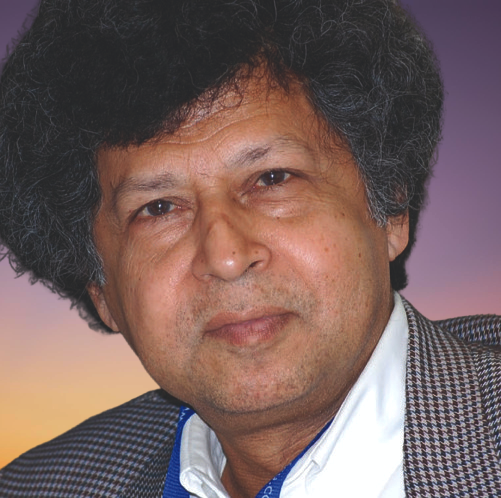Column

freepik
As Bangladesh prepares for its next general elections, there are a few things it can learn from the Maldives and Liberia, two countries on opposite ends of the globe, Both countries in recent months have held free and fair elections that resulted in a change of guards at the top. Neither country's losing parties complained of vote rigging or ballot stuffing. Even losing candidates congratulated their winning opponents.
No one expects such a miracle in Bangladesh, where elections will be held on 7 January without the main opposition parties. It will be similar to a football match in which the home team plays at both ends. If I were a spectator, I would have asked for a refund.
Maldives, a nation of thousand islands, is a neighbor of Bangladesh and a fellow SAARC member. Both countries face many of the same challenges: poverty, environmental crisis, fundamentalism, a big neighbor blowing hot, now blowing cold right on its neck, and a dysfunctional political system where opposing parties are always at each other's throat. However, there is one big difference: Maldives can hold elections with relative fairness and the results are accepted by all, even the fiercest rivals, without much of a complaint. That's exactly what happened in September this year.
Liberia is a country in West Africa with very few things in common with Bangladesh. After many years of a bloody civil war that took more than 200,000 lives and almost destroyed the country, it is just emerging from darkness. Tribal loyalty and political differences remain, but political parties have also embraced a basic principle of democracy that winners of elections are determined by people who can freely and fairly exercise their right to vote. Such a milestone was achieved in November when Liberians elected a new President, ditching the previous one, a popular football player. Many now call Liberia a beacon of hope on a continent where hope is in short supply.
In the run-up to the elections, there were sporadic acts of violence in both countries, with one side claiming the other to be traitors and foreign lackeys. Once the polls closed and results came in, most people agreed the elections had been free and fair, and the results reflected the will of the people. No fuss about stuffing ballot boxes, no complaints about election tampering.
In the Maldives, the incumbent, Ibrahim Mohammad Solih of the Maldivian Democratic Party (MDP), not only congratulated his opponent Mohamed Muizzu on his victory but also congratulated the people of his country for demonstrating to the world how elections should be held. 'Our beautiful experiment with democracy has succeeded," the outgoing President said.
Even more startling was the comment of Liberia's losing President, George Weah. In no time at all, he enthusiastically accepted the results and declared, he might have lost, but Liberia has won. "This is the time for graciousness in defeat", he told his heartbroken supporters.
Both Maldives and Liberia are young democracies that now serve as examples of how peaceful democratic transitions should occur. People have spoken and it is time to move on, losing candidates in both countries said.
This is where Bangladesh stands so far apart. In the past 52 years, no election has had an outcome that was welcomed by both winners and losers. Even the 1991 election held under a caretaker government, considered by objective observers to be both free and fair, was greeted with grudging complaints by the losing party.
In recent years, especially the last two elections, have been marred by a litany of complaints. With main opposition parties boycotting for their insistence on a fairer and neutral electoral management, the resounding victories of the ruling party seemed hollow. Many openly questioned the legitimacy of those clinging to power.
With the key opposition parties again boycotting, it seems we are in for a repeat performance. The ruling party is fielding candidates, both for and against, turning an electoral contest into a theater of the absurd. This is how Eurasia Review, an international news and views on-line journal, described the forthcoming Bangladesh elections: Selection trial, not contest in Bangladesh polls. Economist, a British weekly, was even more blunt. 'Sheikh Hasina's party is set to be re-elected in January.' In other words, results are known well before the first ballot is cast.
It is not the sign of a maturing democracy. The present regime in Bangladesh has many success stories, but failing to uphold the basic assumptions of a democratic polity severely degrades not just its record, but also Bangladesh's prospects for the future. Without a credible national election, the ruling party will lose its political legitimacy and the support of the people it will supposedly represent. The ongoing violence is already hurting the country's economy. Almost one-third of Bangladesh's ready-made garment exports to the US have declined. Continuing election-related disturbances could lead to further declines, according to experts.
Now is the time for Bangladeshi leaders to take a moment to reflect. The purpose of elections is to celebrate democracy. In Bangladesh, they already look like a wake.
If Maldives and Liberia can hold elections for which their people can feel proud, why Bangladesh can't do the same?

























Leave a Comment
Recent Posts
Auspicious beginnings, but a l ...
The newly elected government of Bangladesh is now in office, and the e ...
Caught between tigers and pira ...
Over 10,000 fishermen in the Sundarbans have suspended their fishing a ...
Historic Chawk Bazar comes alive with iftar items on ..
Shaping Young Conservationists: School Conservation ..
Iran has said it has reached an understanding with t ..
New Finance Minister Amir Khosru Mahmud Chowdhury